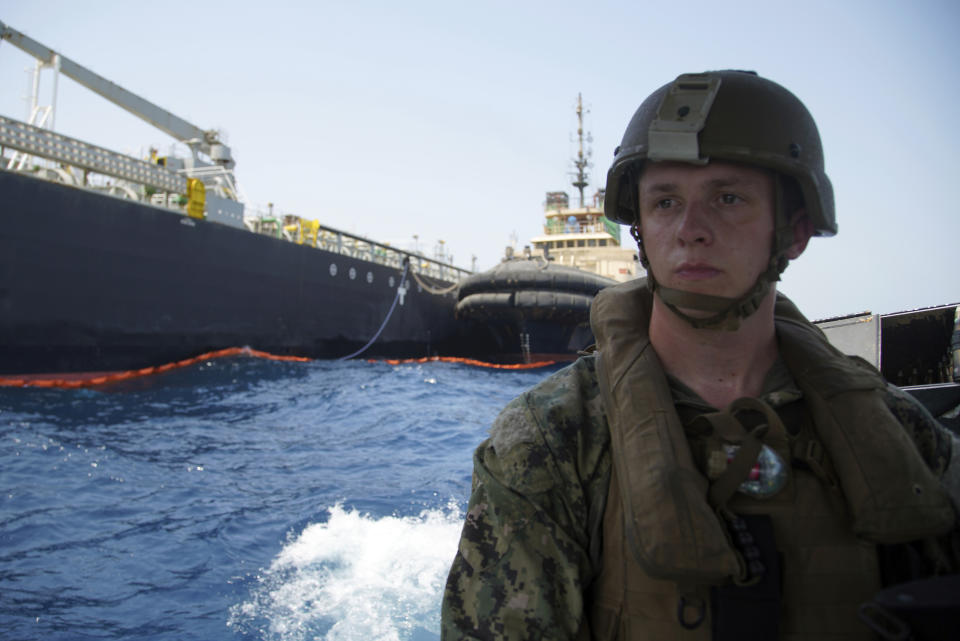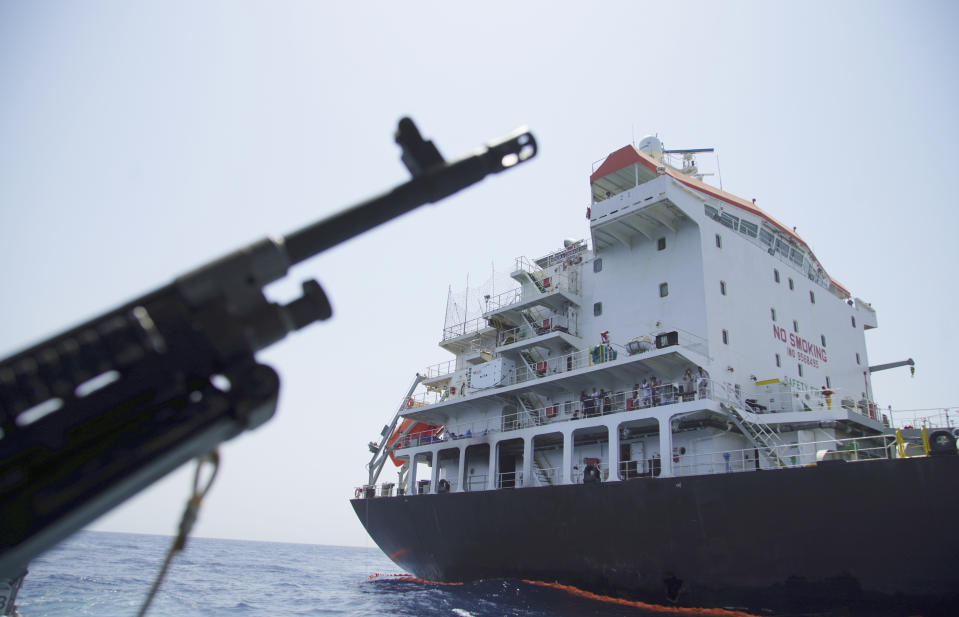Democrats demand answers on Trump's approach to Iran
WASHINGTON (AP) — Democratic lawmakers demanded clarity Wednesday about the Trump administration's position on the use of military force as they sought answers on how the White House plans to address rising tensions with Iran.
The lawmakers specifically pointed to what they called tenuous links between Iran and al-Qaida that they fear the administration could use to justify a military attack under an authorization granted by Congress after the Sept. 11 attacks.
The U.S. special envoy for Iran, Brian Hook, told the House Committee on Foreign Affairs that questions about the authorization would be better answered by a lawyer. But he added, "If the use of military force is necessary to defend U.S. national security interests, we will do everything that we are required to do with respect to congressional war powers and we will comply with the law."
Rep. Ted Deutch, D-Fla., referenced Pompeo's testimony to Congress in April, when he said, "There is no doubt there is a connection between the Islamic Republic of Iran and al-Qaida." Pompeo continued: "They have hosted al-Qaida. They have permitted al-Qaida to transit their country."
Sen. Marco Rubio of Florida, who sits on both the Senate Foreign Relations and Intelligence committees, said he does believe there is a link between Iran and al-Qaida. But he also said the authorization Democratic lawmakers are referencing is "irrelevant" because it would not be needed "to respond to an attack, and to prevent one if it's imminent."
The Trump administration and Iran have said they are not seeking war, but many lawmakers fear that as the U.S. builds up its forces in the region, it increases the chances of the two sides being accidentally drawn into a conflict.
Hook also delivered a classified briefing on Iran to a group of senators Wednesday. Senators exiting the room declined to reveal details, but said it covered intelligence linking Iran to a recent attack on tankers as well as wider U.S. policy in the region.
Sen. Jeanne Shaheen, D-N.H., said members asked about what's next and what American allies are thinking.
Hook told the House committee that Trump's Iran policy has so far been successful and it is ultimately aimed at bringing Tehran to the negotiating table.
"No one should be uncertain about our desire for peace or our readiness to normalize relations should we reach a comprehensive deal," he said. "We have put the possibility of a much brighter future on the table for the Iranian people."
The Trump administration withdrew from the nuclear deal negotiated with Iran under President Barack Obama and began imposing layers of punishing sanctions on Tehran that have strangled its economy. The U.S. blames Iran for a number of attacks against U.S. or Western interests in the Middle East over the past few months, including on tankers near the Persian Gulf and a rocket attack near the U.S. Embassy in Baghdad. Iran denies responsibility for the attacks.
Lawmakers, Democrats in particular, question whether the administration's so-called maximum pressure campaign is really a recipe for war.
"Rather than force Iran back to the negotiating table, the administration's policy is increasing the chances of miscalculation, which then would bring the United States and Iran closer to a military conflict," Deutch said.
Hook responded by saying Iran has chosen to use military force despite Trump's Iran policy largely relying on diplomatic and economic tools like sanctions.
"Our policy is at its core an economic and diplomatic one. But Iran has not responded to this in a diplomatic fashion, it has responded to it with violence. We very much believe that Iran should meet diplomacy with diplomacy, not with terror, bloodshed and extortion," he said.
On Monday, Iran said it could soon start enriching uranium to just a step away from weapons-grade levels, breaching a cap that was set under the nuclear deal abandoned by the United States. The announcement followed warnings from President Hassan Rouhani that a new deal needs to be in place by July 7 or the Islamic Republic would increase its enrichment of uranium.


